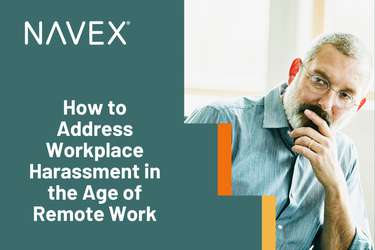This blog is part of the You Can't Delegate Ethics campaign. The campaign posits that systemic change on the issue of sexual harassment will occur only when good people in power take responsibility for the issue and create workplaces that do not tolerate it.
Pulitzer Prize-winning business reporter Charles Duhigg, in his bestseller The Power of Habit: Why We Do What We Do in Life and Business, described the shock and confusion to investors when Paul O’Neil made his first appearance on Wall Street as the new CEO of Alcoa in 1987. Instead of talking about revenues and inventories, O’Neil talked about one thing: his intention to make Alcoa the “safest company in America” by reducing worker injuries. Investors stampeded out of the room. Some rushed to the phone to tell clients to sell Alcoa stocks.
Contrary to the investors’ predictions, however, Alcoa profits hit a record high within a year
Contrary to the investors’ predictions, however, Alcoa profits hit a record high within a year, and its net income and market capitalization rose steadily under O’Neil’s leadership. And yes, Alcoa became one of the safest companies in America to work: work days lost to injury dropped from 1.86 per 100 workers to 0.125 in 2012.
O’Neil accomplished these by taking personal ownership of the safety issue. Approximately six months into his tenure, O’Neil received news that a worker had been killed in an accident at a plant. Within fourteen hours, O’Neil was personally holding a root-cause analysis meeting with his senior executives, identifying every factor that contributed to the accident. Concrete changes were implemented within a week of the meeting. O’Neil invited workers to make safety suggestions, and gave out his home phone number for them to call should their managers fail to follow up on their safety suggestions. This personal engagement and open door resulted not only in safety suggestions, but other great ideas that improved Alcoa’s business.
Making the workplace safer was O’Neil’s driving ethic, and he did not delegate it to a department or to paper policies. The result was not only a safer company, but one where workers were engaged and profits grew. When a leader commits to concrete action rather than pay lip service to a cause, those actions do speak louder than words in earning the trust of employees and stakeholders.
The benefits a culture of safety achieved for the manufacturing sector 30 years ago are similar to what a culture of respect and dignity can achieve for all workplaces today.
What would it look like if company leaders took personal ownership of addressing this issue?
Consider sexual harassment. What would it look like if company leaders took personal ownership of addressing this issue? I believe it is fundamental for leaders to demonstrate the desired behavior personally, and to do so in a variety of ways: treating everyone – whether entry-level or senior management – with respect and courtesy; consistently addressing inappropriate behaviors brought to their attention (recognizing that some behavior deserves condemnation, while others may be remediated through coaching); ensuring diversity of backgrounds and opinions on the leadership team, inviting dissenting voices at meetings. When leaders actually model these behaviors, employees take note.
Read More: We Need to Talk About Gray Areas When Addressing Sexual Harassment
Leaders also need to champion initiatives that support these values in ways that are credible. For example, if you, as a senior leader in the company, do not believe the sexual harassment training is worth attending, don’t talk like it’s important, then slip out after the introduction (everyone definitely notices that). Instead, demand that your HR and compliance leaders deliver training that would make it worth your time and attention. In doing so, you are not only enhancing the credibility of the training, but also showing your respect for your employees’ time and intellect.
Finally, listen to your employees and solicit their views and experiences in earnest. While I do not think it is necessary to invite all employee to escalate issues to your home phone, there are other ways to reach out to them beyond formal meetings and town halls. One executive I know, for example, schedules a lunch or coffee with five random employees every week. These are employees who were not at the level where they would normally have direct encounters senior management, and these informal gatherings allow the executive to meet people and hear things he might not otherwise have known.
Creating a workplace of respect and dignity impacts every employee in the organization: it is ethics that leaders must demonstrate, not delegate.









